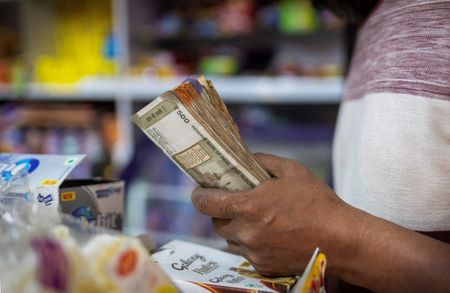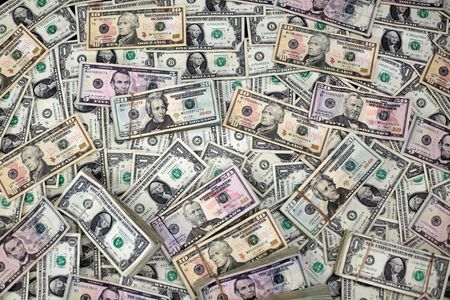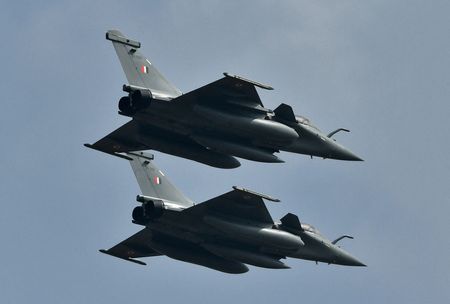By Jaspreet Kalra
MUMBAI (Reuters) – The Indian rupee declined this week as the conflict between India and Pakistan intensified, hurting local equities and sovereign bonds, while likely intervention by the central bank on Friday helped shield the South Asian currency.
The rupee closed stronger on the day at 85.37 against the U.S. dollar. It had weakened to a near one-month low of 85.8425 in early trading before the Reserve Bank of India stepped in to support the rupee, per traders. The currency declined 0.9% on the week.
The conflict between India and Pakistan has widened, with both countries accusing each other of launching new military attacks on Friday, using drones and artillery for the third day in the worst fighting seen in nearly three decades.
“Our sense right now is that there is a fundamental incentive both on India and Pakistan to avoid substantial escalation over the medium-term,” Michael Wan, senior currency analyst at MUFG, said in a note dated May 9.
“With geopolitical conflicts, it is also important to be humble and say that there is much we do not know,” the note added.
The mood among Indian foreign exchange traders shifted from poise to frenzy over the last two sessions as the rupee confronted a sharp decline, with rising hedging costs and options metrics reflecting the market’s nervousness.
The 1-month dollar-rupee non-deliverable forwards climbed to their highest in a month on Friday, underscoring offshore market participants’ concerns about rupee weakness.
India’s benchmark equity index, the Nifty 50 fell over 1% on the day while government bonds were little changed after dipping in early trading. [.BO] [IN/]
“Heavy intervention” by the RBI helped the rupee avoid deeper losses, a trader at a large foreign bank said.
The absence of a central bank intervention could have spared a speculative build-up against the currency, the trader added.
Other Asian currencies were mostly weaker on the day while the dollar index slipped 0.2% to 100.3.
(Reporting by Jaspreet Kalra; Editing by Eileen Soreng)










